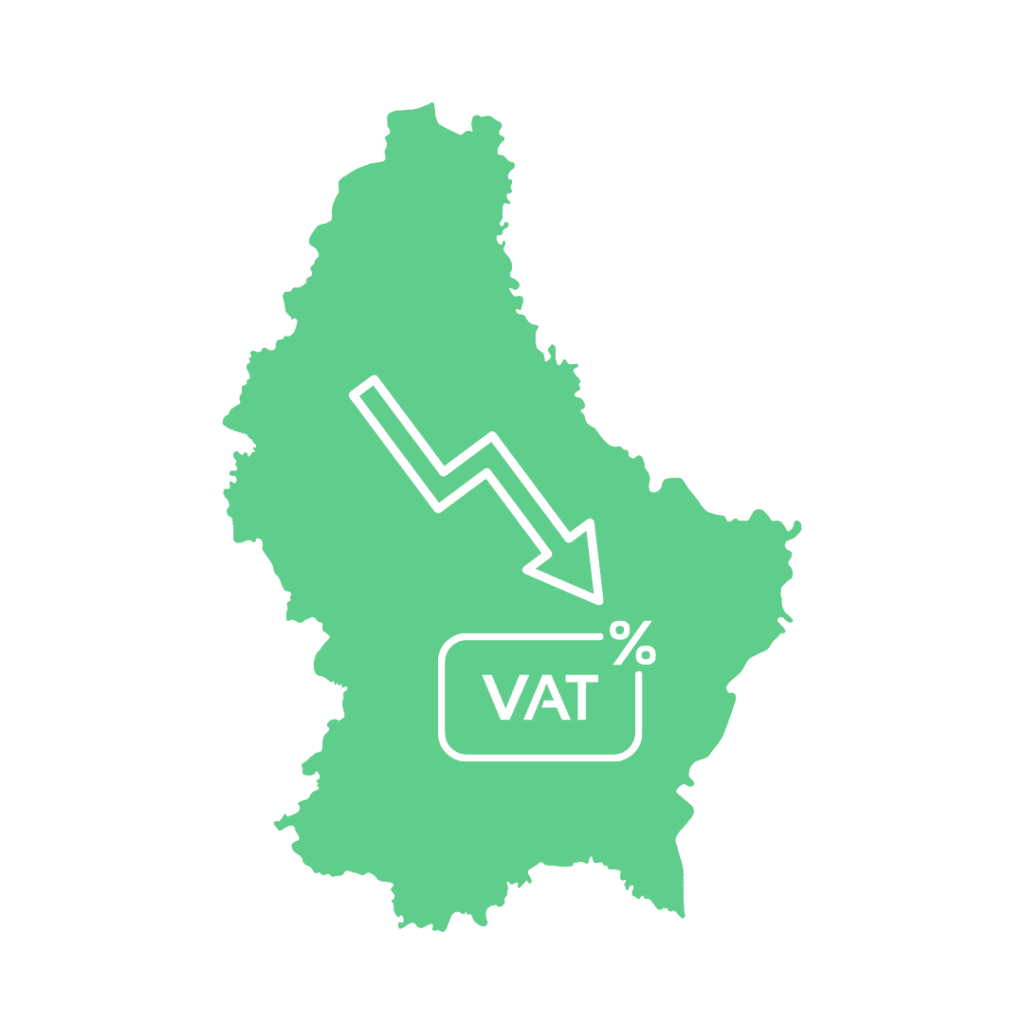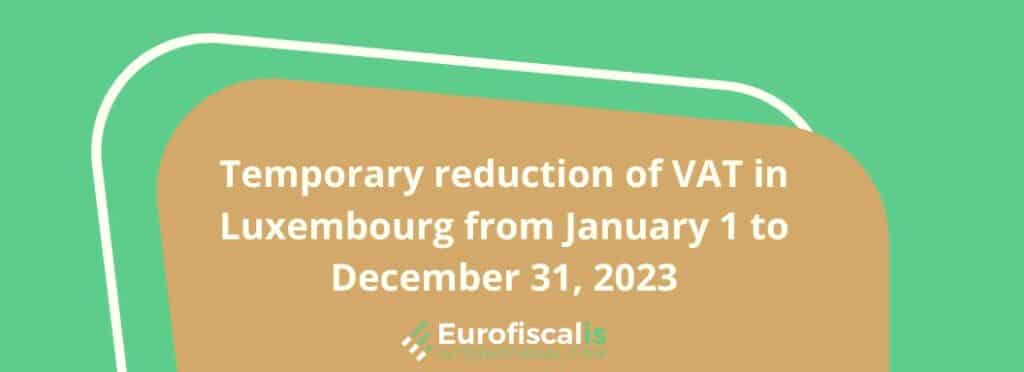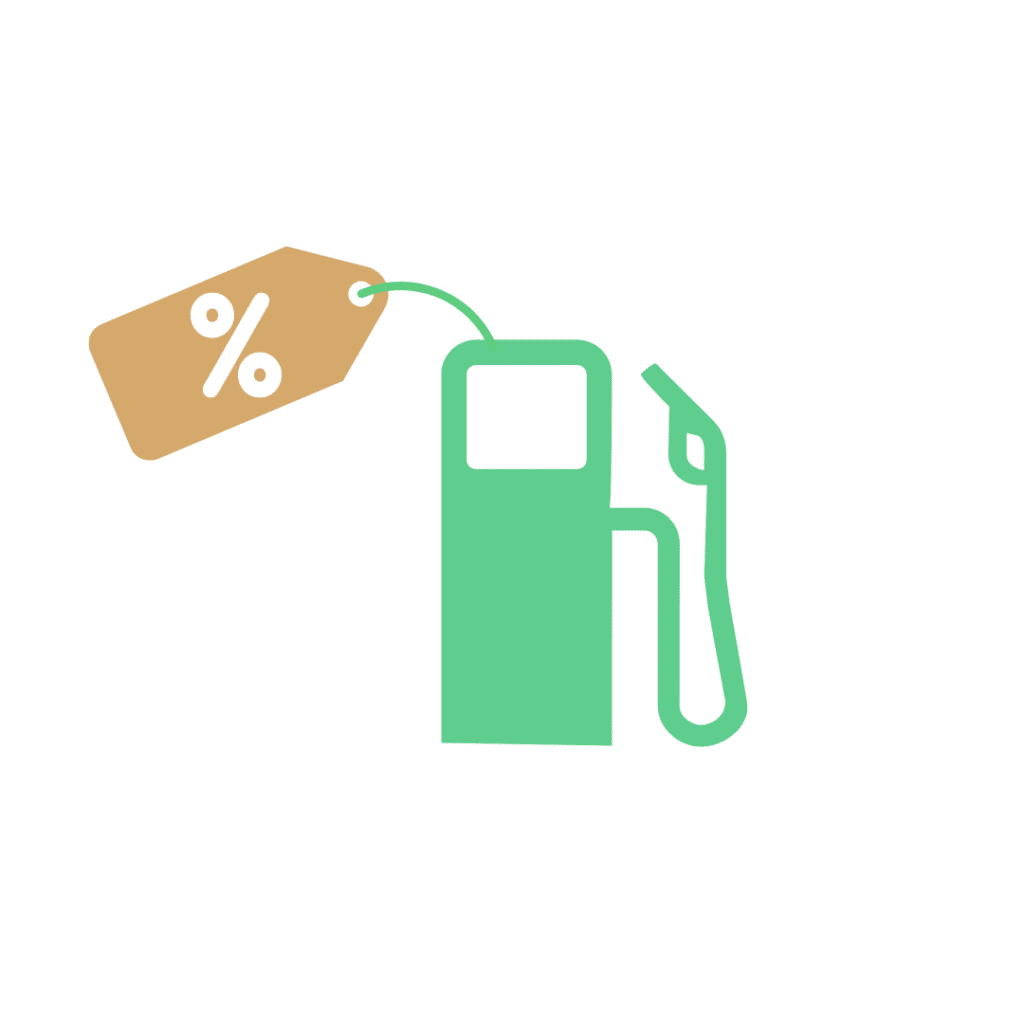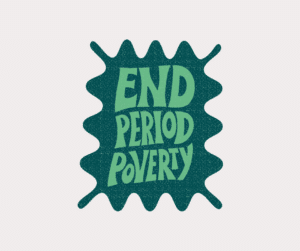
VAT Luxembourg - Reduction of VAT Rates 2023
The Luxembourg government has announced an amendment to the VAT law. The amendment consists of a temporary reduction of VAT rates by 1% in 2023. The reduction will be effective as of January 1, 2023 and is expected to expire on December 31, 2023. This change concerns the standard, intermediate and reduced VAT rates. The super-reduced VAT rate remains unchanged (3%).
Do you have taxable activities in Luxembourg? Do you use fuel for professional purposes? If so, we invite you to read this article to find out what changes in VAT rates and fuel prices are planned for the year 2023.
- Posted:
- Reading Time : 7 min.
- Updated: 15/12/2023
VAT Luxembourg: Rates in 2023 - what do they looked like after the revision?
In order to respond to soaring prices, the government has decided to temporarily lower the VAT rates for the year 2023 (from January 1 to December 31):
- Standard rate: 16% (until now 17%)
- Intermediate rate: 13% (until now 14%)
- Reduced rate: 7% (until now 8%)
The super reduced VAT rate of 3% remains unchanged.
VAT rates in Luxembourg will return to their normal level in 2024.
If you are wondering which VAT rate to use for your product, check out our article where we give you links to official sources to check the VAT rate in Benelux countires: How to check VAT rate and customs code in Benelux?

VAT Luxembourg: Reduction of prices of petrol products
The law also includes information on the temporary reduction in the price of certain petrol products. This has been enabled by the financial compensation proposed by the Luxembourg government. Initially, the reduction was valid until 31 August 2022, but the amendment introduces a further extension until 31 December 2023.
Click here to read everything you need to know about VAT in Luxembourg : VAT Returns, Listing Clients, Tax Agent etc.

The reduced prices apply to diesel and liquefied petroleum gas used as fuel. They apply to all sales of petroleum products from the time they are introduced to the market until they are sold to the end customer. The price of diesel used as fuel is 0.15 euro per liter, and the price of liquefied petroleum gas is 0.20 euro per kilogram. The prices include all taxes.
VAT Luxembourg: Which deliveries of petroleum products are subject to price reduction?
The law also specifies which deliveries of petroleum products are subject to the price reduction. It states that it applies only to customers who use petroleum products as fuel for industrial and commercial purposes, as well as for agricultural, horticultural, fish farming and forestry work.
Get in touch with our Eurofiscalis Benelux Team
Rising VAT rockstar at Eurofiscalis I have a passion for unraveling the complexities of VAT regulations in the European Union (especially Benelux region). My mission is to empower readers to navigate the ever-changing VAT landscape with ease and to answer your questions in a clear and concise way.

Tax Representative in Norway
VAT Guide Tax representation in Norway Do you want to use a tax representative in Norway? You are in the right place! We will explain

Invoice Requirements Norway
Requirements for Norwegian Invoices Navigating the requirements for invoices in Norway Invoices play an important role in business transactions, acting as a critical record of

VAT on sanitary products Norway
VAT on sanitary products in Norway The International Women´s Day is celebrated the 8th of march every year to honor women and their achievements throughout

